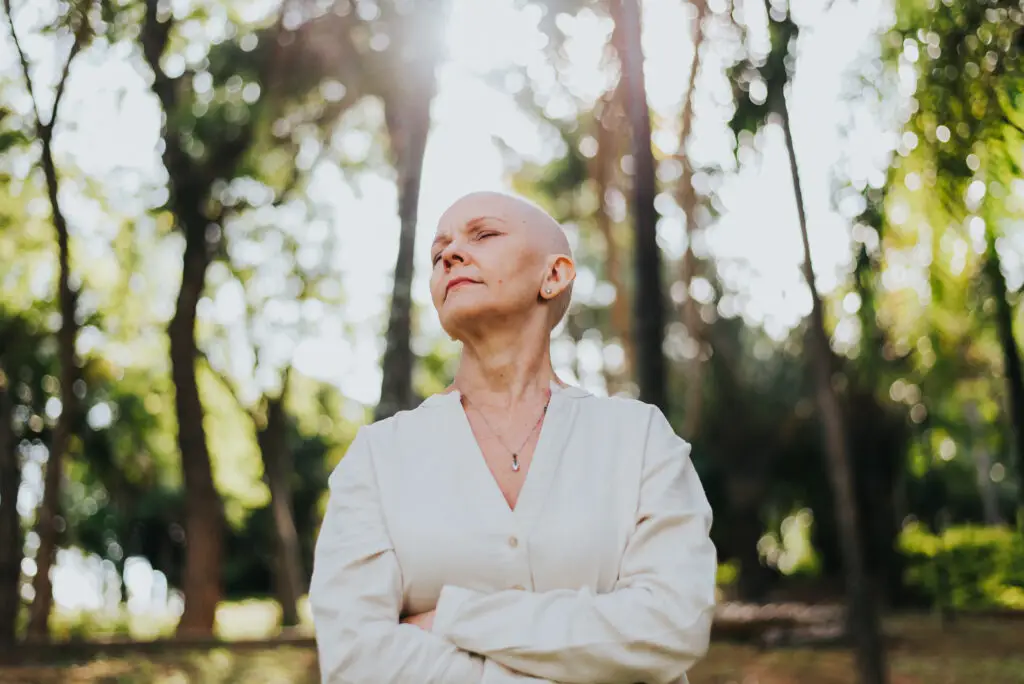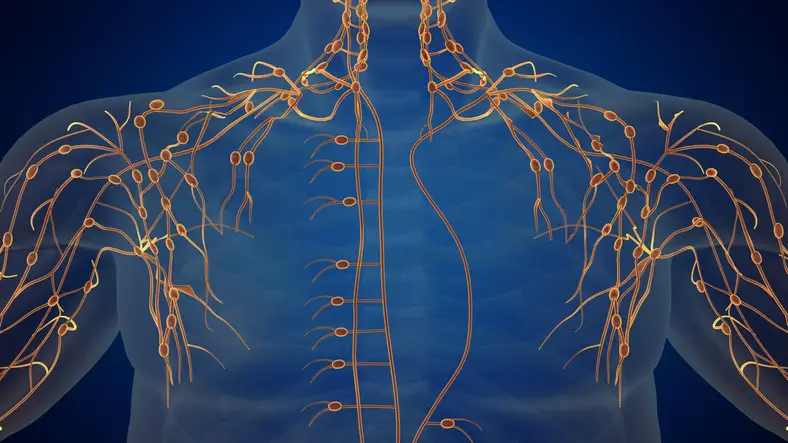Last weekend, the Outcomes4Me team had the honor of attending Living Beyond Breast Cancer’s (LBBC) Thriving Together: 2023 Conference on Metastatic Breast Cancer. We were fortunate to exhibit at the event in-person in Philadelphia, and we also hosted a virtual booth.
Our major takeaway? We’re so impressed and inspired by the strong people we met living with metastatic breast cancer–some of whom have been navigating the disease for more than a decade. When we described the Outcomes4Me value proposition and articulated our efforts to ensure all breast cancer patients have access to the latest, evidence-based, and personalized treatment information that could influence their care, conference attendees shared how excited they were to spread the word about us to their communities at home and to patients who weren’t able to participate in the conference. The metastatic community is so caring and giving–eager to pay it forward and help their fellow patients.
LBBC put on an impressive event, with some powerful and informative sessions.
Here’s a glimpse at two of the topics we were able to listen in on:
Evidence-based guidance powered by NCCN Guidelines®
Personalized treatment plans shaped by the latest oncology standards—tailored to your diagnosis.
Get started
View your personalized treatment plan in the Outcomes4Me app
Use your diagnosis to unlock personalized NCCN Guidelines®-aligned recommendations.
Continue in app
- Nutrition & integrative oncology: We attended the “Ask the expert” session on diet, physical activity, and sleep featuring dietician nutritionist Rachel Beller, MS, RDN and integrative oncologist Pallav Mehta, MD. Both experts offered some very tactical advice, and shared their approaches to both preventing and managing breast cancer. Dr. Mehta described integrative oncology as conventional and alternative medicine coming together in an evidence-based way. The goal is to mitigate symptoms, improve quality of live, and ultimately improve outcomes. Rachel Beller explained how dietary modifications can reduce recurrence, how nutrition plays a role in thrivorship and prevention, and how to integrate nutrition into your care no matter what stage you’re at. The goal: translate nutritional science into action. Here are a few of the specific topics discussed. As always, consult with your own doctor before pursuing:
- Sleep: While treatment (and stress) can absolutely affect sleep patterns, sleep is important during care. Dr. Mehta noted that the research has evolved beyond the “eight-hour requirement” and there’s individualization. He said that most people need at least 6 hours of sleep and under 6 increases the risk of obesity or other health challenges
- Fiber: Both experts noted that no single diet works for everyone, but it is important to integrate fiber from natural foods to contribute to healthy bacteria and gut micro biome. Rachel Beller noted that an easier and more palatable way to ensure you’re consuming enough fiber is to follow her recipe for a flaxseed gel:
- Use 1/4 cup of whole flax seeds (ground) and 2 cups of water
- Simmer for 15-20 mins
- Strain and add a sprinkle of cinnamon
- Ideally, consume 1/4 cup twice a day
- Weight loss & exercise: Managing weight can be an important part of managing cancer, particularly for metastatic patients. Decreasing excess body fat and increasing muscle together is important. But, the experts acknowledged that for women with metastatic cancer, it may be very difficult to work out. They underscored that exercise is: what it means to you. For some, a 10-minute walk is real exercise. For example, you may be a triathlete who is also living with metastatic cancer. You have to adjust your routine based upon your own level of fitness (both before and after diagnosis). Dr. Mehta suggested also looking into the American Council on Exercise and searching by zip code for oncology-certified trainers.
- Managing grief: Kelly Grosklags, LISCW, BCD, FAAGC, FT led a keynote on the topic of “coping with grief.” Through her Conversations with Kelly platform, she offers resources for people navigating grief and loss–whether loss of a loved one, transitioning to a new phase of life, or dealing with our own mortality. Check out the Conversations with Kelly Facebook page on the first Monday of each month for a live conversation with Kelly and her expert guests on this topic.
There were also other fantastic exhibitors–all of whom offer unique services to patients. These include:
Triage Cancer: The team at Triage Cancer helps cancer patients manage non-medical issues that emerge after a cancer diagnosis, including through the support of decision-making when it comes to practical matters such as employment, finances, and legal concerns. On its website, Triage Cancer offers numerous free resources and guides to help both cancer patients and caregivers.
For the Breast of Us: The Baddies at For the Breast of Us are on a “mission is to empower women of color affected by breast cancer to make the rest of their lives the best of their lives through education, advocacy and community.” With a specific focus on supporting Black, Hispanic, and Asian/Pacific Islander women, For the Breast of Us “helps women overcome the barriers to great healthcare experiences in their pursuit of their personal definition of quality of life.”
Triple Negative Breast Cancer Foundation: Triple negative breast cancer (TNBC) is a subtype of breast cancer that is often more aggressive and difficult to treat than other forms of the disease. It’s called “triple negative” because it lacks three common receptors that are found in other types of breast cancer: estrogen, progesterone, and HER2. The Foundation offers a range of services for patients with TNBC; one includes a TNBC Hotline.
Count Me In: As President Biden’s National Cancer Plan underscores, donating tissue and tumors can contribute to cancer research. Count Me In enables patients to do this in an effort to support broader cancer research efforts.
We Are Here: Associated with Livestrong, We Are Here aims to provide patients diagnosed with cancer immediate access to a range of support services including: housekeeping, delivery, mental health resources, and a support team composed of both experts and peers to guide patients through the overwhelming period of a new diagnosis.
Our MBC Life: We loved meeting Victoria Goldberg, producer of the SHARE Cancer Support’s Our MBC Life podcast. The podcast features wide-ranging interviews with oncologists, patients, and patient advocates. There’s a large vault of historical episodes on numerous different topics–well worth a listen!
Project Life: Our friend and inspiration to patients everywhere Abigail Johnston was representing Project Life at the event. Project Life offers a “virtual wellness house membership” which offers ongoing support to patients navigating metastatic illness.
Personalized support for real care decisions
Understand your diagnosis, explore clinical trials, and track symptoms--all in one place.
Get started
Compare treatments, prepare for appointments, and track side effects—all in the app
Built for your diagnosis, Outcomes4Me gives you the tools to make confident, informed decisions—right when you need them.
Continue in app






